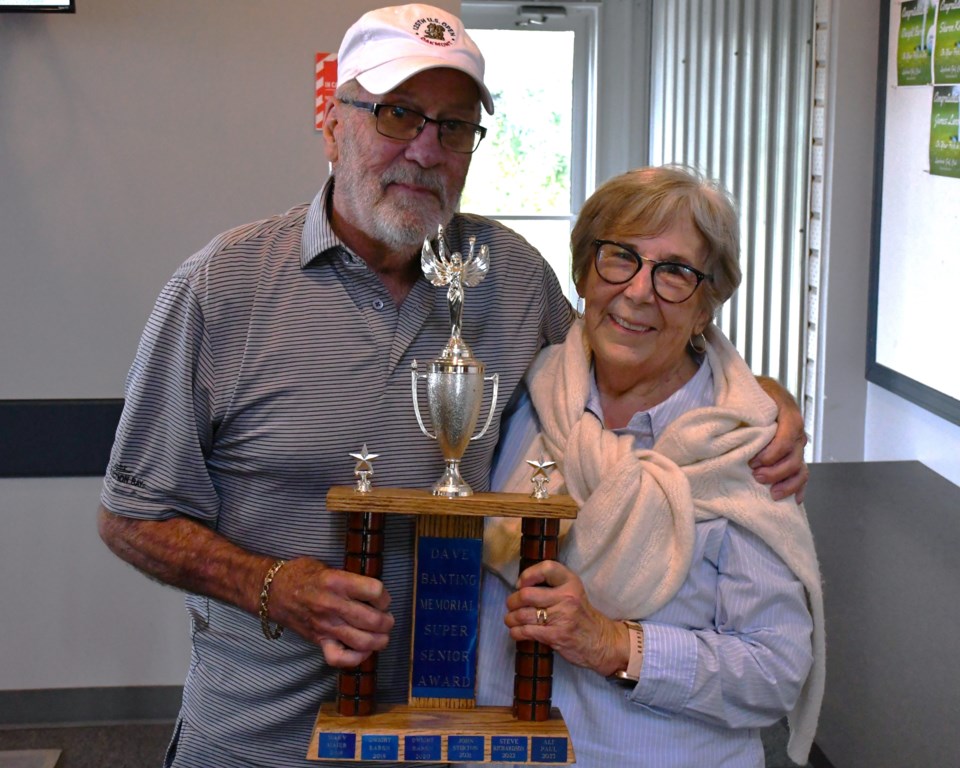MOOSE JAW — The 2025 Dave Banting Memorial Golf Classic at the Lynbrook Golf Course brought back more than just memories of community and family — for one retired athlete, it also brought reflections on his time as a professional hockey player and his roots in Moose Jaw.
Born in Moose Jaw, George Swarbrick had an extensive career in hockey, including stints with the Moose Jaw Canucks and the Moose Jaw Pla-mors. His talent on the ice earned him a spot with the Canadian Olympic hockey team for the 1964 Winter Olympics in Innsbruck, Austria.
Though the team ultimately won bronze, it was a thrilling journey that saw Canada nearly claim the gold.
“We were leading 2-1 in the third period against Russia (then Soviet Union),” he recalled. “But they came back and won 3-2. It could have been the gold medal (game).”
His Olympic experience wasn’t the only highlight of his career. After the games, he turned pro with the San Francisco Seals in the Western Hockey League and won the Rookie of the Year award.
As the National Hockey League expanded from six to 12 teams in 1967, he was picked up by the California Golden Seals, and later traded to Pittsburgh and Philadelphia, where he played for several years.
The California Golden Seals, based in Oakland, California, played in the NHL from 1967 to 1976. Originally founded as the San Francisco Seals in 1961, the team moved to Oakland in 1967 and was renamed multiple times, including the Oakland Seals and Bay Area Seals.
Despite bold marketing efforts and notable players, the Seals struggled both on the ice and with attendance, never achieving a winning record. In 1976, the franchise was relocated and became the Cleveland Barons, before merging with the Minnesota North Stars in 1978. The legacy of the Seals lives on through the San Jose Sharks, which began in 1991.
Reflecting on the players he faced, Swarbrick described the legendary names he shared the ice with. “Bobby Hull, Gordie Howe, Phil Esposito — those guys were something else,” he said. “Gordie Howe was mean. He was so strong and tough — you never wanted to play against him. He could take your ear off if he wanted to.”
He spoke about the evolution of hockey, from the way the game was played in his time to the modern, fast-paced version seen today.
“The players are so much bigger and faster now,” Swarbrick said. “They’re trained better. Back in the day, we didn’t even practice tricks with the puck or do fancy moves — it was all about getting the job done. Now, these guys practice stickhandling, dekes, and taking shots like bullets.”
In the early days of the NHL, Swarbrick said trick shots were somewhat frowned upon. “Somebody on your team would call you a hot dog if you tried to show off too much,” he recalled.
Despite some changes to the game he grew up with, Swarbrick still enjoys watching hockey and marvels at how much the sport has progressed. “It’s amazing to see how far the game has come. I love watching the players shoot. The game is faster, and the skill level is unbelievable.”
His love for Moose Jaw remains strong. Though he now resides outside Omaha, Nebraska, he was happy to return for his sister’s 90th birthday celebration. “It’s great to be back here,” Swarbrick said. “Moose Jaw has always been a special place for me. It’s a great city with a lot of history, and it’s always nice to reconnect with family and old friends.”




